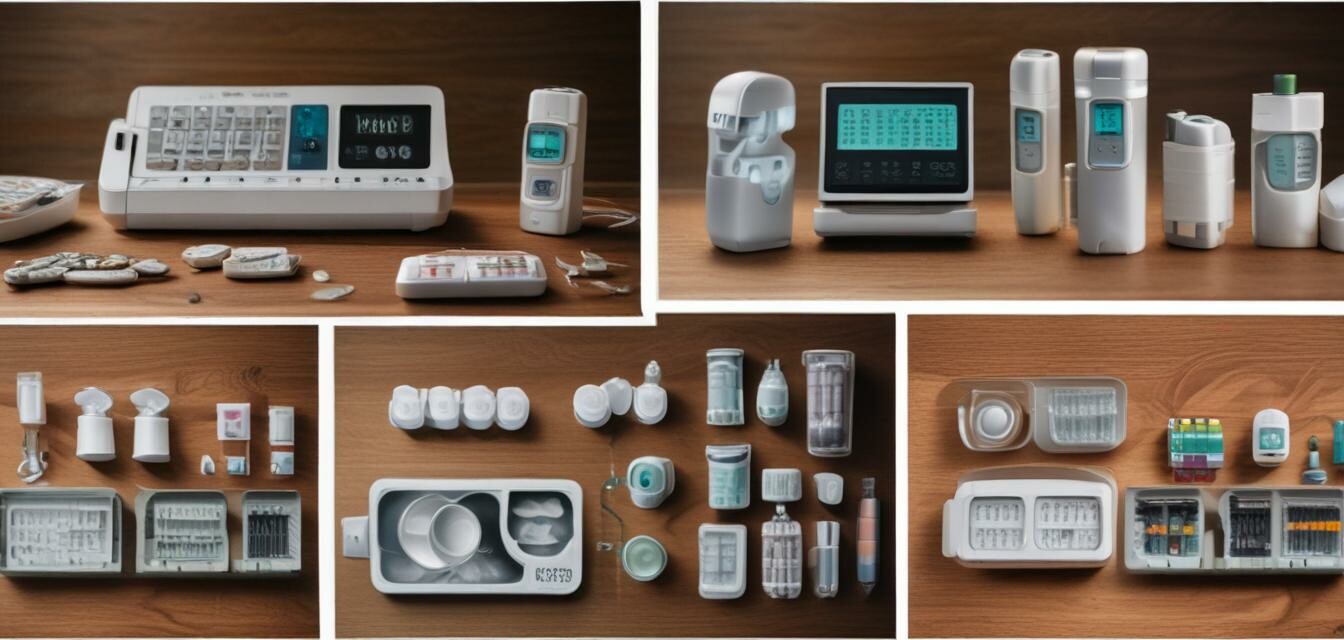
Top Medication Management Gadgets for Seniors
- Medication management is crucial for seniors to maintain their health.
- Smart gadgets can help remind seniors to take their medications on time.
- Automatic dispensers provide convenience and reduce the risk of mistakes.
- Communication features in gadgets can keep caregivers informed.
- Choosing the right gadget can enhance independence and peace of mind.
As we age, managing our health becomes more complex, and medication compliance plays a significant role in maintaining well-being. Medication mismanagement can lead to serious health consequences for seniors, making it essential to have effective systems in place. Fortunately, modern technology offers numerous solutions that can greatly assist seniors in taking their medications regularly and accurately. In this buying guide, we will explore the top medication management gadgets that can help seniors manage their medication schedules effectively.
Why medication management is essential for seniors
For seniors, keeping track of multiple medications can be challenging. Various factors contribute to this difficulty, including cognitive decline, complex medication schedules, or simply the sheer number of pills to take. Here are a few reasons why effective medication management is crucial:
- Health maintenance: Proper medication adherence helps to manage chronic conditions and prevents complications.
- Cognitive support: Setting reminders can aid in maintaining cognitive health by establishing routines.
- Independence: Effective medication management allows seniors to maintain independence and reduce reliance on caregivers.
Top categories of medication management gadgets
Here are the main types of medication management gadgets that are popular among seniors:
- Pill organizers: These help organize pills by day and time, ensuring seniors take the correct dosage.
- Smart dispensers: Automated devices that dispense the right medications at the right time.
- Medication reminder systems: Technologies that send alerts to remind seniors when it's time to take their medications.
- Voice-activated assistants: Devices that can assist with medication prompts through voice commands.
- Alert systems for caregivers: These gadgets inform caregivers if medications are not taken as scheduled.
Comparison of popular medication management gadgets
| Gadget Type | Features | Benefits | Price Range |
|---|---|---|---|
| Pill Organizers | Compartments for each day and time | Easy to follow schedule, prevents double-dosing | $10 - $30 |
| Smart Dispensers | Automated dispensing, alerts | Reduces medication errors, convenience | $40 - $150 |
| Reminder Systems | Alarm notifications, mobile app support | Increased adherence, less confusion | $20 - $70 |
| Voice Assistants | Reminders via voice, integration with other smart devices | Hands-free assistance, versatility | $50 - $150 |
| Caregiver Alert Systems | Notifications if doses are missed | Peace of mind for family, proactive care | $30 - $100 |
Choosing the right medication management gadget
When selecting a medication management gadget, consider the following factors:
- Ease of use: The gadget should have simple controls, especially if the user may have limited technical skills.
- Size and portability: Consider whether the user will need to travel with the device or if it will remain at home.
- Communication features: Some devices may alert caregivers when doses are missed, providing an added layer of support.
- Price: Ensure the gadget fits within your budget while meeting necessary features.
Conclusion
For seniors, effective medication management is not just about taking pills; it's about maintaining independence and ensuring a better quality of life. By utilizing the right gadgets, seniors can navigate their medication schedules more easily, allowing them and their families to experience peace of mind. Explore our Buying Guides for further insights into the best smart home gadgets tailored for seniors and their unique needs.
Tips for using medication management gadgets
- Establish a routine: Incorporate medication times into daily habits.
- Educate family members: Make sure caregivers and family know how to use the technology.
- Regularly update information: Change dosages or schedules in the device as needed.
- Revisit your choices: Regularly assess whether the chosen gadget meets the user's needs effectively.
Pros
- Enhances medication adherence
- Supports independence for seniors
- Reduces caregiver workload
- Variety of options available
Cons
- Can be expensive
- Technology may be challenging for some seniors
- Requires regular maintenance and updates